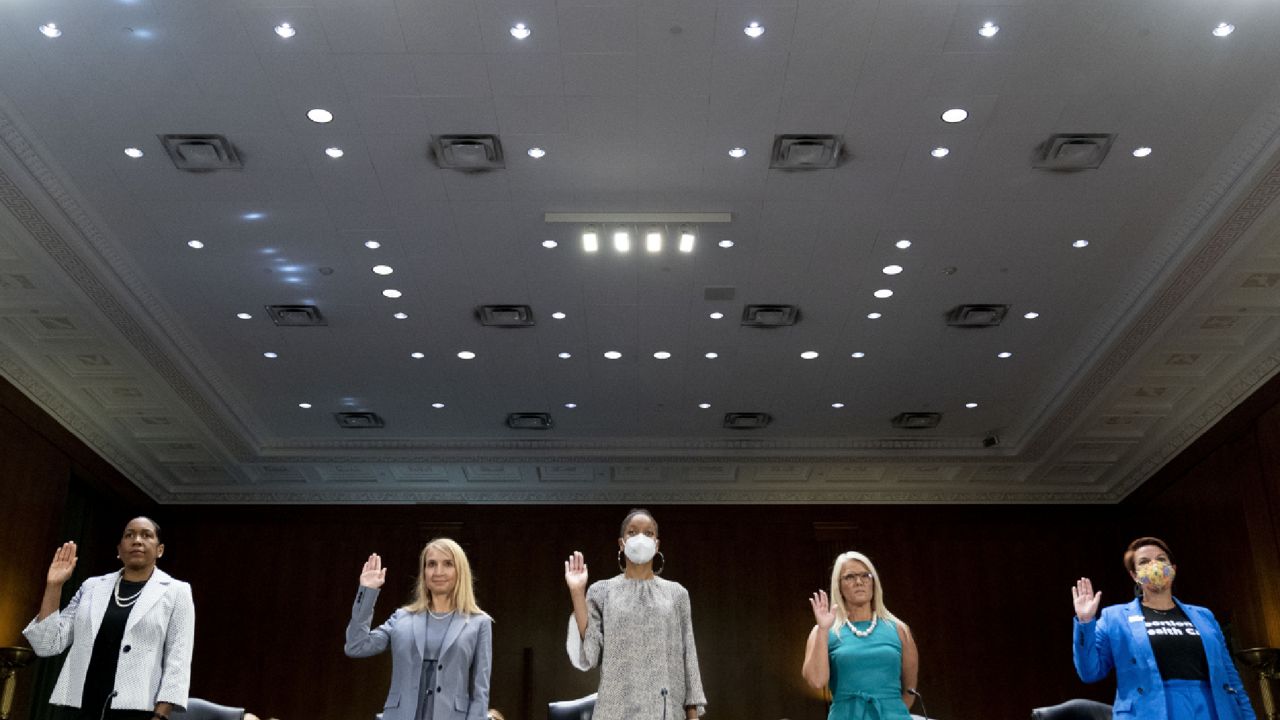The Chief Medical Officer for Planned Parenthood of the St. Louis Region and Southwest Missouri told a U.S. Senate panel Tuesday that the Supreme Court’s ruling overturning Roe v. Wade has created “vastly different realities” when it comes to accessing abortion care.
The Senate Judiciary Committee heard testimony from Planned Parenthood’s Dr. Colleen McNicholas, Illinois Lt. Gov. Juliana Stratton, Senior Counsel and Director of the Center for Life for the Alliance Defending Freedom Denise Harle, UC Berkeley School of Law Professor Khiara Bridges and Alternatives Pregnancy Center Executive Director Heidi Matzke.
McNicholas noted how Planned Parenthood’s Fairview Heights facility has been flooded since the ruling, as patients have come from 1,000 miles away seeking care. Several states, including Missouri, have trigger laws that now largely ban abortion except for in the case of medical emergencies.
She also described the “chaos” she says is playing out in the days since the ruling.
“We are already seeing mass chaos among OBGYNs, emergency room physicians, and quite frankly pharmacists. We’re talking about people being denied or delayed care for pregnancy and non-pregnancy related conditions. Lupus, arthritis, cancer, medications that we use frequently to control those conditions, are being denied to patients because they might also contribute to miscarriage, or can be used for abortion in other indications. OBGYNs who are sitting on patients in emergency rooms while they bleed, while their vital signs become unstable, while they’re waiting for hospital lawyers to decide is this patient sick enough,” McNicholas said.
The Biden administration said Monday that federal law on emergency treatment guidelines preempts state laws in jurisdictions that now ban the procedure without any exceptions. The U.S. Department of Health and Human Services said emergency conditions include “ectopic pregnancy, complications of pregnancy loss, or emergent hypertensive disorders, such as preeclampsia with severe features.”
The hearing largely played out on partisan ideological lines, with Republican lawmakers praising the Supreme Court’s ruling, saying that the decision is now rightfully in the hands of the states, while also saying Democrats favored “abortion on demand”. Democrats criticized what they described as “a patchwork” of abortion laws now on the books, pointed to poor mortality rates in states with strict abortion laws and said the Court’s ruling will lay the path to overturn other rights grounded in a right to privacy.
While witnesses testified about violence directed at both abortion clinics and pregnancy centers and debated the legal justification for the Supreme Court’s ruling, the hearing may be remembered most for an exchange between Sen. Josh Hawley and UC Berkeley School of Law Professor Khiara Bridges.
The House Oversight Committee plans a similar hearing Wednesday.




